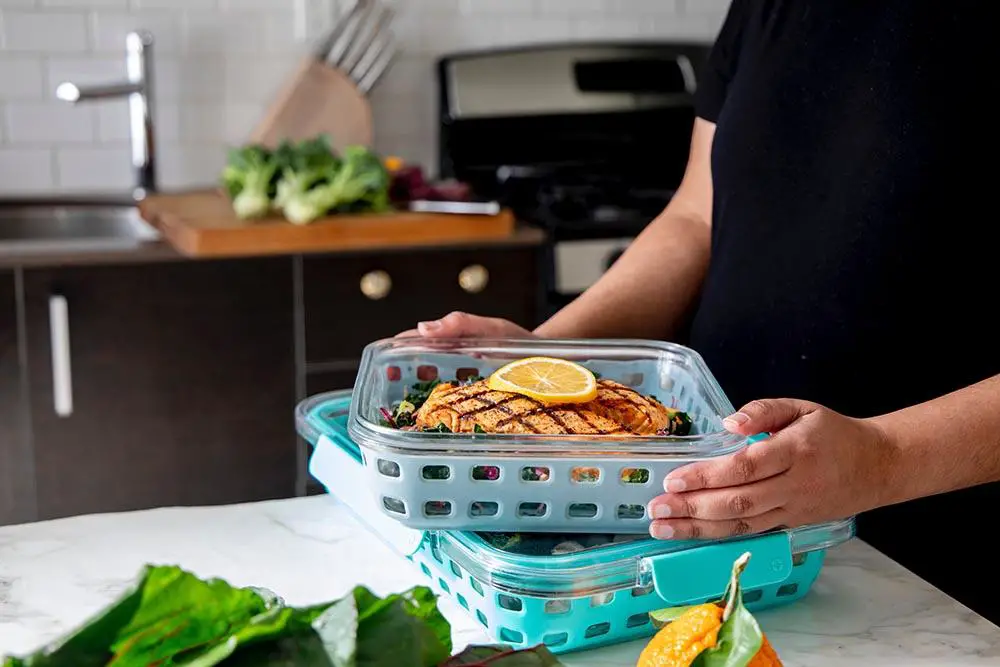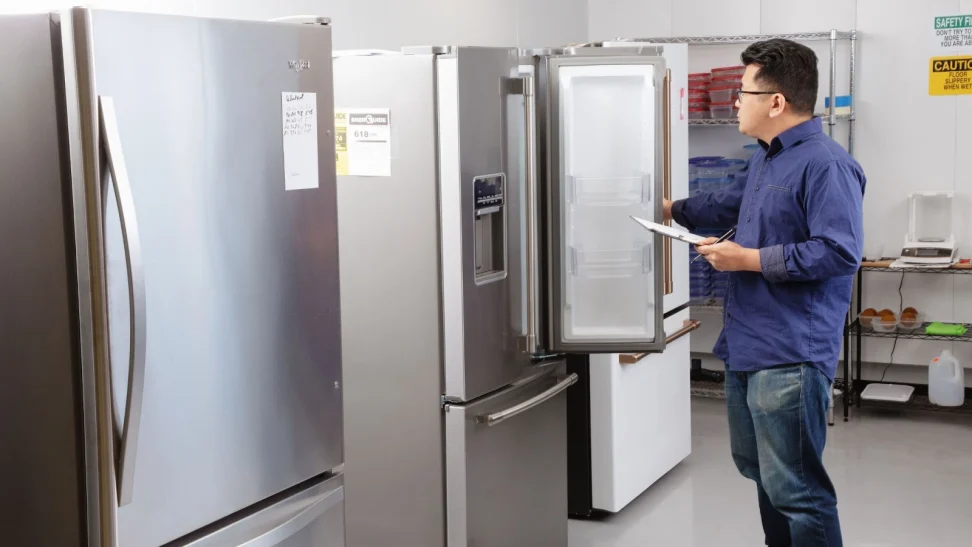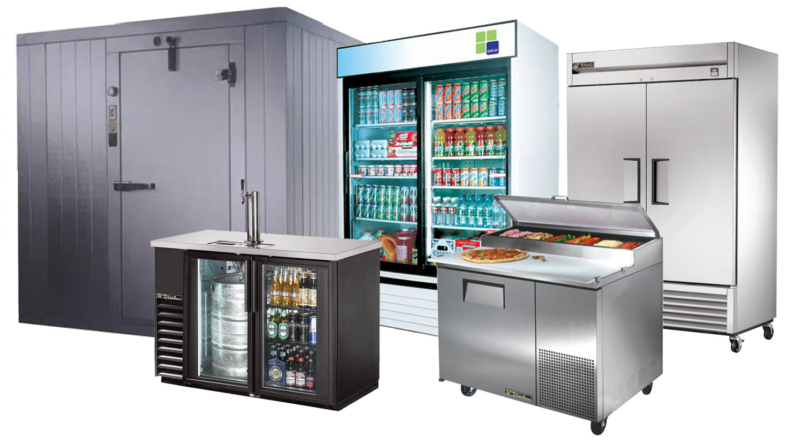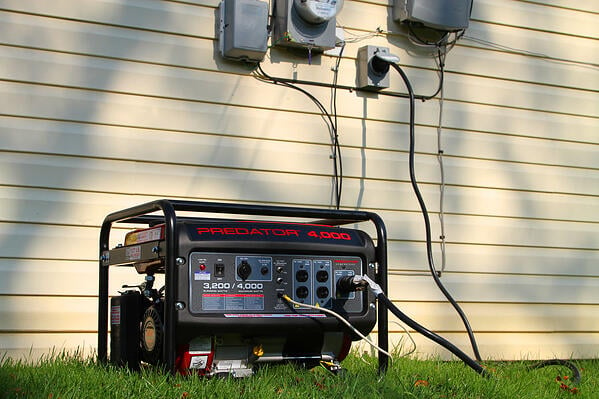What Are Common Fridge Rules?
Fridge rules are essential for maintaining a safe and healthy kitchen, especially when it comes to food storage. Common fridge rules include ensuring food items are properly labeled and dated, storing raw and cooked foods separately, and regularly cleaning and organizing the refrigerator. These rules can help keep food from spoiling and prevent the spread of foodborne illness. Following proper fridge rules can help ensure that food stays safe and delicious.
Establishing Clear Rules
Having a shared refrigerator can be a great convenience for a family or a group of roommates. However, it can quickly become a source of conflict if everyone doesn’t agree on the rules for using the fridge. Setting clear expectations for refrigerator use can help ensure that everyone is on the same page and that the fridge remains organized and clean.
Common rules for refrigerator use should be centered around food safety, cleanliness, and respect for one another’s food. Food safety guidelines should include not allowing perishable food to sit in the fridge for more than a few days and making sure all food is covered or sealed. Cleanliness rules should include wiping up spills promptly and not using expired food. Respect for one another’s food should include labeling all food with a name or initials and not eating another person’s food without permission.
It is also important to establish expectations for the use of communal food. For example, if a family or group of roommates has a shared food supply, such as condiments, spices, or snacks, it should be clear to everyone responsible for restocking the food when it runs out. It is also important to agree on when food should be thrown away and who is responsible for throwing it away.
By establishing clear rules for refrigerator use, families and roommates can ensure that everyone is on the same page and that the shared kitchen space remains organized and hygienic.
Keeping Food Separated
The kitchen fridge is one of the most important items in the home, and it needs to be kept in top condition to keep food safe and fresh. The best way to ensure that food is kept safe is to follow some common fridge rules. These rules include keeping food separated to avoid contamination.
When storing food in the fridge, it is important to separate raw meats from cooked or ready-to-eat foods. Raw meats should always be placed on the bottom shelf to prevent cross-contamination. Cooked food should be placed in airtight containers to keep it from spilling onto other foods, and should be placed on the top shelf.
It is also a good rule of thumb to store food in the fridge according to the expiration date. This helps to ensure that you are using food before it goes bad. To make sure that food is properly stored, use the first-in-first-out (FIFO) rule. This means that the first thing you put in the fridge should be the first thing you use.
By following these rules and taking the time to properly store food in the fridge, you can ensure that your food remains safe and healthy. Additionally, following these rules will help to keep your fridge organized and reduce the chance of cross-contamination.

Credit: insidefacilities.princeton.edu
Cleaning and Maintaining the Fridge
The refrigerator is a staple appliance in any kitchen, but it needs to be properly cleaned and maintained to keep it functioning properly. It’s important to keep contaminants and strong odors out of the fridge, as well as ensure food is stored properly and kept fresh. To keep your refrigerator in the best condition, there are some key rules to follow.
The most basic rule is to regularly clean your fridge. This includes wiping down the interior and exterior surfaces, as well as removing any expired or spoiled food. This will help prevent bacteria and bad smells from developing in the fridge. Additionally, it’s important to regularly check the temperature of the fridge to make sure it’s running properly. A good rule of thumb is to keep it between 37 and 40 degrees Fahrenheit.
It’s also important to make sure all food is stored properly, as this will help prevent spoilage and contamination. Make sure all foods are in sealed containers and that raw and cooked foods are stored separately. Additionally, make sure all food packages and containers are labeled and dated so you can keep track of when food was opened and when it should be discarded.
Finally, when stocking your fridge, make sure the shelves are not overcrowded and that there is enough air circulation for the fridge to run properly. Additionally, try to keep the fridge door closed as much as possible, as this will help to keep the cold air in and prevent food from spoiling. Following these common fridge rules will help keep your refrigerator in good condition and ensure that your food stays fresh and safe.
Rotating Food Items
Fridge rules are essential to ensure that the food stored in your refrigerator is safe to consume. Common fridge rules include rotating food items, cleaning regularly, and avoiding cross-contamination.
Rotating food items means that you should replace any food items that are close to their expiration date with fresh ones. This helps ensure that no food goes bad and also reduces the risk of food poisoning. Additionally, it is important to keep track of what items you have in your fridge, as some foods have a shorter shelf life than others.
Cleaning your fridge regularly is key to preventing any bacteria or germs from growing. Make sure to wipe down the walls and shelves of the fridge with a mild cleaning solution. Additionally, it is important to keep any spills or messes cleaned up immediately to prevent bacteria from forming.
Finally, it is important to avoid cross-contamination. This means that raw and cooked food should be kept separate, as well as any leftovers. Additionally, make sure to always use a different cutting board for raw meat and vegetables. By following these basic rules, you can ensure that you are storing food properly in your fridge.
Taking Inventory
We all know that an organized fridge is the key to a healthy diet. Every family should have their own set of fridge rules to help ensure that the food in their refrigerator is fresh and safe. But what are the most common fridge rules?
A good starting point is to take inventory of your fridge. Doing a quick once-over of your refrigerator can help you identify any expired, spoiled, or contaminated food that might have been overlooked. It is also important to check expiration dates on items that have them. Additionally, pay attention to where different food items are stored. Many foods need to be kept in designated areas, such as raw meats and vegetables, to maintain food safety. It is also a good idea to label shelves and compartments to help ensure that food is stored correctly.
Cleaning out your fridge regularly is also important. This helps keep food contamination at a minimum and can help you identify any food that has gone bad. It is also important to check the temperature of your fridge to make sure it is set correctly for food safety.
By following these common fridge rules, you can be sure that the food in your refrigerator is safe, fresh, and organized. Taking the time to regularly take inventory of your fridge and keep it clean and organized is the best way to make sure your family is eating healthy and safe meals.
Ensuring Appropriate Temperature
It’s important to keep your fridge properly maintained and stocked with healthy food for it to function at its best. To do this, you must be aware of the common fridge rules that can help you keep your food safe and ensure that it is stored at the proper temperature. First, it’s important to note that the temperature of your fridge should be between 37- and 40 degrees Fahrenheit, or just below 4 degrees Celsius. This range is optimal for preserving most foods and keeping them safe to eat. Additionally, it’s important to understand the concept of time and temperature abuse. This occurs when food is not kept at the appropriate temperature for a long period, which can cause bacteria to grow, leading to foodborne illness. It’s also important to practice proper food storage to prevent cross-contamination. This means storing raw meat and poultry away from ready-to-eat foods and making sure to separate raw vegetables and fruits from other items in the fridge. Following these simple guidelines can help you keep your food safe and ensure that it is stored at the proper temperature.

Credit: reviewed.usatoday.com
Avoiding Overcrowding
When it comes to keeping food fresh and safe to eat, one of the most important refrigerator rules is to avoid overcrowding. An overcrowded fridge can cause problems with temperature control and can lead to food spoiling more quickly. In addition, overcrowding can make it difficult to find food items or to locate items that need to be thrown away. To keep food safe and properly cooled, it’s important to keep the refrigerator organized and not overcrowded.
Organize food by categories – place similar items together, and store items so that air can circulate freely. Place food items on the shelves, not on the door. The shelves on the door are not cold enough to keep food properly cooled. When it comes to food storage, a good rule of thumb is to store food items on a shelf that corresponds to the type of food – for example, store meats on the bottom shelf, dairy on the middle shelf, and fruits and vegetables on the top shelf.
Clean the refrigerator regularly to ensure food safety and proper cooling. Wipe spills immediately, and don’t forget to wipe down the door gaskets and seals. If the refrigerator is overstuffed, take some time to throw out spoiled food and organize the shelves.
By following these fridge rules, you can help keep food properly cooled, avoid food spoiling, and keep your refrigerator running smoothly.
Advocating for Proper Food Handling
Refrigerators are a staple in most homes, and they are used to store food, beverages, and leftovers. While a fridge can be an invaluable asset when it comes to preserving food and preventing spoilage, it is important to understand the rules for proper food handling to keep your food safe and prevent foodborne illness. This article will discuss common fridge rules and how they can help ensure food safety.
The first rule of proper food handling is to keep hot foods hot and cold foods cold. Foods that are cooked should be cooled quickly and stored in the refrigerator within two hours of cooking. On the other hand, foods that are already cold should be kept in the refrigerator or freezer to prevent spoilage.
The second rule of proper food handling is to ensure that the temperature of the refrigerator is between 34 and 40 degrees Fahrenheit. Keeping the refrigerator at a consistent temperature is essential for food safety and can prevent bacteria from growing on food. Additionally, it is important to make sure that the refrigerator is not overstocked, as this can affect the temperature and cause food to spoil.
The third rule of proper food handling is to store raw meats, poultry, and seafood on the bottom shelf of the refrigerator. This is important because raw foods can contain bacteria that can cause foodborne illness, and storing them on the bottom shelf prevents the juices from dripping onto other foods. Additionally, never store cooked foods directly above raw foods, as this can also cause cross-contamination.
Finally, it is important to make sure that the refrigerator is kept clean and free of debris. It is important to wipe down the shelves and drawers regularly and discard any moldy or spoiled foods. Additionally, it is important to make sure that the refrigerator door is kept closed, as this helps to maintain the temperature and prevents food from spoiling.
Following these common fridge rules can help to ensure that food is stored properly and remains safe. Proper food handling is essential for preventing foodborne illnesses, and understanding the rules of the fridge can help to ensure that food is kept safe and healthy.
FAQs About the What Are Common Fridge Rules?
1. Can I store food in the refrigerator and freezer for an extended period?
Answer: Generally, it is best to store food in the refrigerator and freezer for no longer than two weeks. Any food stored longer than that should be frozen for longer-term storage.
2. What temperature should I keep my refrigerator and freezer at?
Answer: For optimal food storage, the refrigerator should be set to a temperature of 40°F or lower, and the freezer should be set to a temperature of 0°F or lower.
3. Is there anything I shouldn’t store in the refrigerator?
Answer: Certain items should not be stored in the refrigerator, such as eggs, unripe fruits, onions, garlic, and potatoes. These items should be stored in a cool, dry place.
Conclusion
The rules for a fridge can vary from household to household, but some common rules are to keep it organized, clean, and stocked with healthy foods. It’s important to be mindful of expiration dates and to use food promptly. Additionally, there should be a designated space for each person’s food, and the temperature should be set according to the manufacturer’s instructions. Following these rules will help keep everyone in the household safe and healthy.







